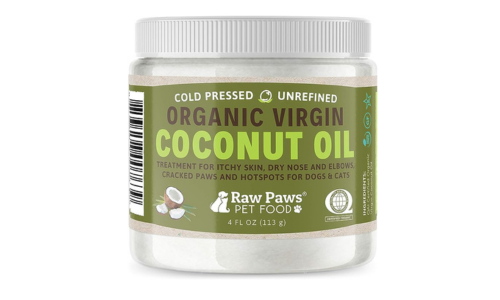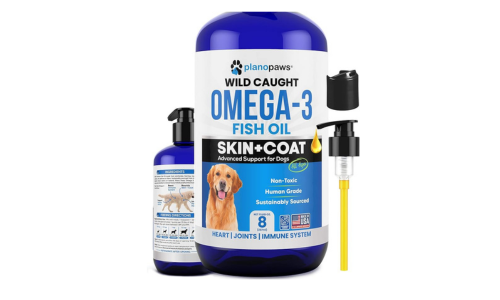As we approach 2024, finding safe and effective alternatives to Apoquel for our furry friends becomes increasingly important. In this guide, we will explore the best alternatives to Apoquel, keeping in mind the latest developments and advancements in canine health. Whether you’re a concerned pet parent or a veterinarian seeking reliable treatment options, this article will provide valuable insights for the well-being of our canine companions.
Understanding Apoquel and Its Limitations
As we delve into the realm of canine healthcare, it’s crucial to fully understand Apoquel, the treatment it’s being used for, and why alternative solutions are being sought. Apoquel is commonly prescribed for dogs dealing with allergies and skin conditions, but its usage comes with a set of challenges and limitations, especially for long-term treatment.
Overview of Apoquel and its Use in Canine Health
If you’ve ever had a dog that struggled with allergic itchiness, you might have come across the drug Apoquel. As a pet parent, you probably know how crucial it is to find relief for your furry friend.
Apoquel is a prescription medication. It’s used to control itching, redness, and inflammation associated with allergic skin conditions in dogs. The drug essentially ’switches off’ the itch, so your dog can enjoy some much-needed relief.
But it’s important to understand that Apoquel isn’t a cure. It won’t solve the underlying causes of your dog’s skin allergies. It simply manages and reduces the symptoms for a certain period.
While Apoquel helps to manage symptoms, it isn’t a long-term fix. Taking it for a prolonged period is associated with some health concerns. This raises the need for safer alternatives to maintain the well-being of your pet.
Challenges and Limitations of Using Apoquel for Long-Term Treatment
Apoquel, known as a miracle drug for dogs suffering from allergies, definitely has it perks. It reduces itching and inflammation fast, bringing quick comfort to suffering pets. However, specifically for long-term use, this medication has its own set of challenges and limitations.
Despite being incredibly effective in suppressing itchiness, Apoquel does not cure the underlying cause of skin allergies or chronic dermatitis in dogs. It’s like plugging up a leak without fixing the broken pipeline. While your dog may get short-term relief, the underlying issue persists.
Another significant challenge is the potential side effects, especially with long-term use. These include diarrhea, vomiting, lethargy, and even more severe outcomes like the susceptibility to infections and possibly malignancies. As a pet owner, it’s critical to weigh these potential risks against the benefits and consider all available treatment options.
Natural Remedies and Supplements
As 2024 approaches, the landscape of canine healthcare is undergoing a shift towards natural remedies and supplements. Recognizing the potential side effects of pharmaceutical treatments like Apoquel, many pet parents and veterinarians are opting for holistic, natural care. Within this realm, a variety of plant-based therapies, supplements and dietary tweaks can bolster a dog’s health holistically, reducing allergic reactions without risking long-term side effects. These remedies are gaining momentum as safe alternatives that can enhance dogs’ well-being across the globe.
Exploring the Effectiveness of Natural Remedies such as Turmeric and Coconut Oil
Turmeric and coconut oil are gaining traction as safe and effective alternatives to Apoquel. These natural ingredients offer a bevy of health benefits for our dogs.

Originating from India, turmeric is a powerful spice known for its anti-inflammatory properties. Its main active compound, called curcumin, may alleviate symptoms related to skin problems in dogs.
Coconut oil is another exceptional remedy; a rich source of lauric acid, it can aid in soothing and nourishing a dog’s itchy skin. Applied topically or added to your dog’s diet, coconut oil can provide impressive relief from inflammation.
Both options, despite being natural, should be introduced gradually. Always remember to consult with a veterinarian before making changes to your pet’s regimen.
Coconut oil for pets: the benefits and uses (https://www.akc.org/expert-advice/health/coconut-oil-for-dogs/)
Introducing Dietary Supplements to Support the Overall Health of Dogs Without the Side Effects of Apoquel.
In our quest to find a safe and effective alternative to Apoquel for our dogs, dietary supplements have emerged as a significant player. Dietary supplements, including omega fatty acids, probiotics or specific vitamins, can offer a host of benefits for the overall health of dogs.
Omega fatty acids, for example, are well-known for their anti-inflammatory properties. Incorporating them into your dog’s diet could help relieve itchy and inflamed skin, a common problem often treated with Apoquel.

Probiotics are another excellent choice. They can boost your dog’s immune system and promote good digestion, factors that indirectly maintain healthy skin and coat. Essential vitamins and minerals, specifically vitamin E and zinc, have also demonstrated great promise in supporting a dog’s skin health.
It’s important to remember that before introducing any dietary supplement, you should consult with your veterinarian. After all, the well-being of our furry companions is our first priority! At the heart of it, these supplements could offer a holistic approach to canine health, and prove to be a valuable alternative to Apoquel in 2024.
Herbal and Homeopathic Alternatives
In our quest for a safe alternative to Apoquel for dogs, the world of herbal and homeopathic remedies holds promising solutions. This approach embraces the power of nature to offer gentle, yet effective relief for skin conditions in dogs. A myriad of ancient herbs and carefully formulated homeopathic treatments can offer real results without the risk of side effects often associated with pharmaceutical drugs. Let’s take a closer look at these options.
Highlighting the Benefits of Herbal Remedies like Chamomile and Licorice Root for Managing Skin Allergies in Dogs
Herbs have been used medicinally for centuries, and we’ve seen a resurgence of interest in herbal remedies for health issues, including those that plague our four-legged friends. Two such herbs, chamomile and licorice root, are showing promise as potential alternatives for managing skin allergies in dogs.
Chamomile, often consumed as a soothing tea, has been found to have anti-inflammatory properties that can make it effective in treating skin conditions. Its gentle nature also makes it safe for our canine friends in the right dosage. Pet parents can include chamomile infusion in their pet’s diet or apply it topically on the affected area. Remember, a patch test is essential before topical application to check for allergic reactions.
On the other hand, licorice root has been recognized for its potent anti-inflammatory and immune-boosting characteristics. Researchers believe it can play a crucial role in relieving itchiness and redness associated with skin allergies in dogs. Like chamomile, licorice root can be used both orally and topically. However, due to its powerful properties, licorice root should be utilized under the guidance of a holistic vet.
Remember, while these herbs show potential, they are part of an integrated approach to managing your dog’s skin conditions. It’s essential to consult with a veterinary professional to ensure these treatments will work harmoniously with your pet’s overall health regimen.
Homeopathic Treatments: A Gentle Yet Effective Approach
Homeopathy presents a broad spectrum of possible solutions when it comes to treating skin conditions in dogs. These treatments are usually based on the philosophy of “like cures like.” This means that a substance that causes similar symptoms as the disease in a healthy animal could help alleviate the condition in an ailing dog.
Some of the most common homeopathic remedies include Sulphur, which is often administered for hot spots, rashes, and itchy skin. Apis Mellifica is another popular remedy used for skin conditions that cause swelling or puffiness. It’s particularly effective for hives caused by allergies.
Drawing on the body’s innate healing mechanisms, homeopathy aims to restore a state of physiological balance without resorting to invasive procedures or synthetic pharmaceuticals. This means fewer side effects and a more holistic treatment approach.
According to the National Center for Homeopathy, many veterinarians and pet owners report a high level of success in using homeopathic solutions to treat a wide array of skin conditions. However, they also emphasize that homeopathy should be complemented by other healthy lifestyle changes for the absolute best outcomes.
Moreover, homeopathic remedies are generally affordable and readily available. They are not only gentle on your pet’s system but also promise to be light on your pocket.
National Center for Homeopathy, “Skin Problems: Hives, Hot Spots and More” (http://www.nationalcenterforhomeopathy.org)
Cutting-Edge Therapies and Innovations
As we move deeper into the 21st century, breakthroughs in medical science aren’t just limited to humans. Our canine companions are also benefiting from scientific advancements. This segment will focus on some of the most promising treatments and innovative alternatives to traditional medicines that are shaping the future of canine healthcare.
Overview of Innovative Treatment Options Like Immunotherapy and Gene Therapy for Canine Allergy Management
In the ever-evolving sphere of canine healthcare, novel treatments like immunotherapy and gene therapy are promising safe alternatives to Apoquel. These progressive medical advancements are gaining momentum due to their potential in mitigating conditions such as skin allergies in dogs.
Immunotherapy is a method that uses dogs’ immune systems to battle allergies. By carefully introducing small doses of allergens into their system, the goal is to gradually build up their immunity. Consequently, this fends off subsequent allergic reactions. While this therapy might entail a slow-paced start, it has established a track record for granting lasting relief from allergies.
On the other hand, gene therapy presents a pioneering approach to address canine allergy management. It involves altering the genes within a dog’s cells, effectively neutralizing the root causes behind the allergies. Though still in its early stages, gene therapy holds great promise in revolutionizing how we combat allergic conditions in dogs. As 2024 approaches, we can expect more robust trials and potential applications of gene therapy in the sphere of canine health.
By challenging conventional treatment modalities, both immunotherapy and gene therapy are laying the foundation for an innovative and safer approach to cater to the well-being of our four-legged friends.
Evaluating the Potential of Stem Cell Therapy in Addressing Chronic Skin Conditions in Dogs
When it comes to promising treatments for dogs with chronic skin conditions, stem cell therapy appears as a standout contender. This solution focuses on the innate healing abilities of your dog’s own cells.
Stem cell therapy uses your dog’s own cells to provide a natural healing response. The treatment starts with the extraction of stem cells from the dog’s own tissue, usually taken from fat cells. After being harvested and processed, these active stem cells are then injected back into the dog’s body.
By providing a higher concentration of these invaluable cells where they are needed, the dog’s body can kickstart its self-healing processes. Stem cell therapy has been successful in treating a myriad of health issues in dogs, including chronic skin conditions.
For our canine buddies with stubborn skin allergies, stem cell therapy might just be the ticket to a healthier, itch-free life. As we transition into 2024, the potential of this bio-therapy is ever more exciting, providing a safe alternative to Apoquel for dogs dealing with incessant itching and skin discomfort.
Remember, always consult with your vet before starting new treatments.
Lifestyle Changes and Environmental Factors
Making specific lifestyle changes and managing environmental factors can drastically improve your dog’s health. It’s much more than just finding an alternative to Apoquel. It’s about creating an overall healthier lifestyle for your beloved furry friend. Let’s dive deeper into how these variables can positively impact the management of allergic reactions and sensitive skin issues in dogs.
The Impact of Lifestyle Changes, Including Diet and Exercise, on Managing Allergic Reactions in Dogs
Just as a balanced diet and regular exercise are essential for human health, they also play a crucial role in managing allergic reactions in dogs. Diet and exercise can work on two fronts: they can both prevent allergies from developing and also alleviate existing symptoms.
The first step in dietary management of allergies in dogs is identifying and eliminating any potential food allergens. This might involve a process of elimination, testing one potential irritant at a time to isolate the cause of your dog’s discomfort. Introducing hypoallergenic diets, composed of novel proteins and carbohydrates, can also help minimize adverse reactions.
Exercise, meanwhile, boosts overall health which can help your pet withstand allergy symptoms. Regular workouts can strengthen the dog’s immune system, making them more resilient against allergens. However, it’s vital to consider where and when you exercise your dog—places with a high pollen count can exacerbate symptoms.
Finally, remember that every dog is unique. The diet and exercise regime that works best for one dog may not necessarily be the best for another. Always consult with your veterinarian to create a tailored wellness plan for your furry friend.
Minimizing Environmental Triggers and Creating a Safe Living Space for Dogs with Sensitive Skin and Allergies.
The environment we create for our pets plays a significant role in their health, especially for dogs with sensitive skin and allergies. Certain household materials and environmental factors can trigger allergic reactions in dogs. To address this, pet owners must take proactive steps to modify their pets’ living spaces.
One simple yet effective strategy is regular cleaning of your pet’s environment. This includes washing their bedding, vacuuming the floors, and wiping down surfaces to reduce the presence of allergens like dust mites and pollen. As an add-on measure, air purifiers and dehumidifiers can help in maintaining clean and fresh air indoors to further boost their health.
Beyond cleanliness, pet owners should also prioritize creating a comfortable and stress-free environment. This could involve setting up designated spaces for them to relax, ensuring adequate ventilation, and avoiding products made from materials that can potentially trigger allergic reactions, such as certain types of fabrics or cleaning agents.
Lastly, always ensure they have access to fresh and clean water. Hydration plays a key role in maintaining the overall health of dogs and particularly, in boosting their skin health.
Remember, it’s not just about buying expensive gadgets or overhauling your entire home. Small changes can make a big difference in providing a health-enhancing environment for your dogs. It’s worth noting that each pet is unique and it may take some trial and error to find out what’s best for yours. Still, your effort will go a long way in ensuring they lead a healthy and happy life.
Looking Ahead: The Future of Canine Health Solutions
As we move further into the new decade, it’s crucial to keep an eye on the horizon of canine health solutions. Pet owners and vets alike will benefit from understanding up-and-coming treatments and research that offer a hopeful future. This section of our guide delves into some of these promising advances we are seeing in the field.
Exploring Upcoming Research and Studies on Novel Alternatives to Apoquel
We live in an era of innovation and science, which continuously shapes the healthcare industry, including veterinary medicine. Ongoing research and studies are promising in offering new alternatives to the Apoquel for our beloved canine companions.
New frontiers in veterinary medicinal research often explore holistic and nature-based treatments. These approaches are becoming more popular due to their proven effectiveness and lesser side effects compared to pharmaceutical drugs. Other areas of exploration include innovative therapies and the use of technology for improved and personalized pet care.
In the field of immunotherapy, for instance, scientists are testing vaccines to strengthen the immune systems of the dogs. This method aims to help them combat allergens with resilience.
The world of genomics is another fascinating sphere to mention. Tailored treatments based on the genetic makeup of individual pets could revolutionize veterinary medicine by opening avenues for better diagnosis and targeted therapies.
The future seems promising. As breakthroughs continue to emerge, our pets could reportedly benefit from more efficient and safer healthcare solutions.
Considering the Promising Advancements in Canine Health and What it Means for Pet Care in 2024 and Beyond
With 2024 on the horizon, we’re seeing exciting breakthroughs in canine health. These advancements aren’t just rigorous science; they’re driven by passion and love for our four-legged friends.
In recent years, we’ve seen everything from 3D-printed prosthetics to DNA testing for breed determination and genetic health monitoring hitting the market. These innovations make a profound difference in diagnosing and treating various conditions, ensuring a great quality of life for our pets.
In 2024 and beyond, canine healthcare looks more promising than ever. With a growing interest in developing alternatives to pharmaceuticals like Apoquel, the spotlight is now on more natural and holistic treatments. Think of remedies like chamomile tea baths for allergenic pups or probiotic-rich diets to enhance your canine’s gut health.
“Veterinary care is undergoing a pleasant change. 2024 will be abuzz with talk of gene therapies, innovative diagnostic tools, and a move towards ‘pets-as-family’ approach,” shares Dr. Lucy Barker, a renowned veterinarian with over two decades of experience.
Dr. Barker isn’t alone in her optimism. A multitude of veterinarians and pet care experts are dedicating themselves to finding sustainable, safe, and effective ways of ensuring wellness in our pets.
With these advancements in the pipeline, the future of pet care in 2024 and beyond seems brighter than ever. Our efforts today will lead to a healthier tomorrow for all our furry friends.
Conclusion
In the dynamic landscape of canine healthcare, seeking safe and effective alternatives to Apoquel is crucial for the well-being of our beloved pets. By staying informed about the latest developments in natural remedies, innovative therapies, and future research, we can ensure that our furry companions receive the best possible care in 2024 and beyond.
- Smelly House Because of Dog? Take These Hygiene Tips - May 20, 2025
- How to Introduce a Dog To a Cats Without Chaos - May 6, 2025
- 4 Best Cavapoo Rescues in the UK 2024 - April 5, 2024








